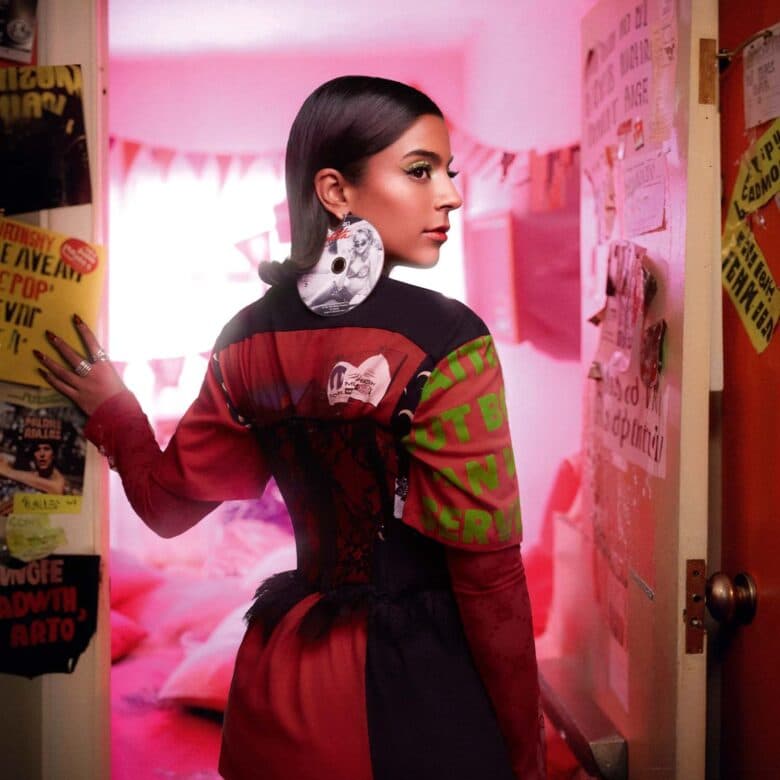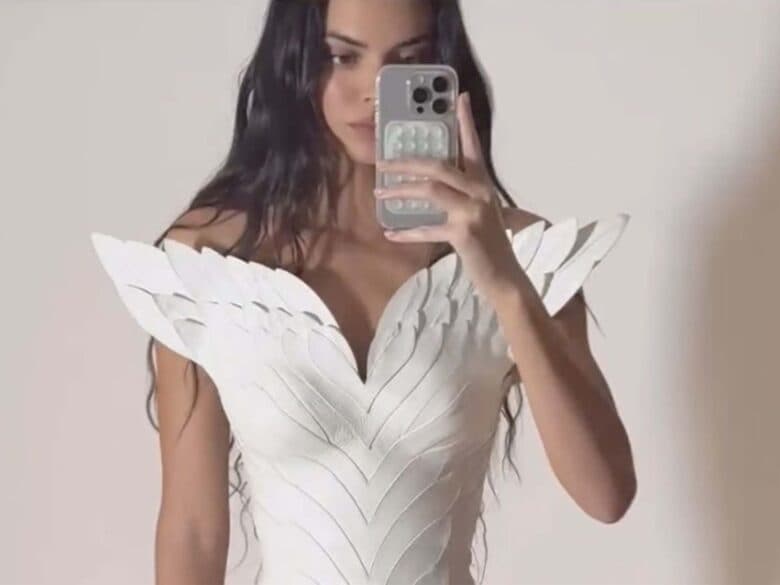Naomie Harris on sci-fi, climate change, and why being a Black lead shouldn’t make headlines
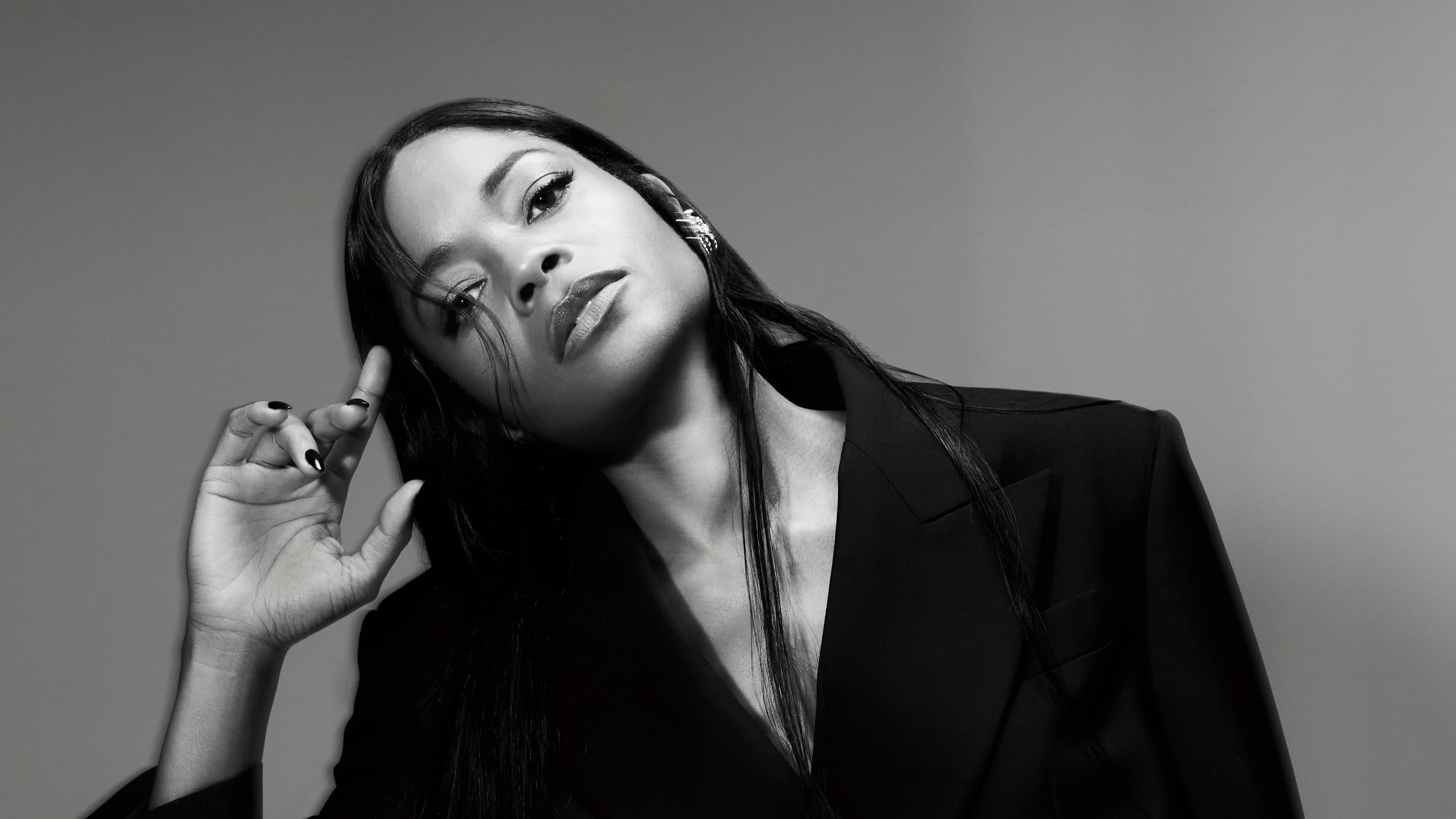
After 35 years in the acting industry, Naomie Harris has certainly earned her chops. Having started out as a child actor, Harris went on to star in big-budget action flicks like Pirates of the Caribbean, as well as slow-burn dramas, à la Moonlight, for which she scooped up an Academy Award nomination. Most famously perhaps, in 2011, she became the first Black actor to portray Moneypenny in the James Bond franchise — a role that she has held for over a decade. It’s a storied career, which has made for a rather discerning eye when it comes to selecting her next project.
Perhaps that’s why she chose to star in the upcoming Showtime remake of an enduring sci-fi classic, The Man Who Fell to Earth. Based on the eponymous Walter Tevis novel and the subsequent 1976 film adaption that starred David Bowie, Harris and her co-star, Chiwetel Ejiofor have breathed new life into a story that is more prescient now than ever before. In it, an alien named Faraday [Ejiofor] arrives on Earth with two missions: to learn to become a human and find the one scientist, Justin Falls [Harris] who can help save his dying species. The twist? In order to save his planet, they must save Earth first.
It’s a marvellously topical plotline, as we come out of two years of the Covid-19 pandemic amidst the devastating and escalating effects of climate change — a matter that is close to both actors’ hearts. “There is no more pressing issue than the way we’re treating our environment,” Harris tells her colleague-turned-interviewer Ejiofor as HUNGER listens in. “When we talk about the environment, we’re really talking about ourselves; we pollute the water that we drink, and we pollute the air that we then inhale. To me, it’s a lack of self-respect, in fact.”
Harris is open about the fact that pivoting to prestige TV after doing decades of film was a struggle. “Challenges, challenges challenges,” she laughs, detailing gruelling work schedules and trying emotional arcs. But it is precisely this type of drama, the kind that can spark change, which makes it worthwhile for the actor. As she and Ejiofor agree: “There are a few things that are more powerful than the medium that we’re lucky enough to be part of, and therefore I think we have to treat our work with tremendous amounts of care and respect, and really realise that people are incredibly influential and easily influenced.”
Here, Ejiofor and Harris discuss their topical new show, why having two Black leads shouldn’t be a talking point, and their hopes for the next generation of talent.
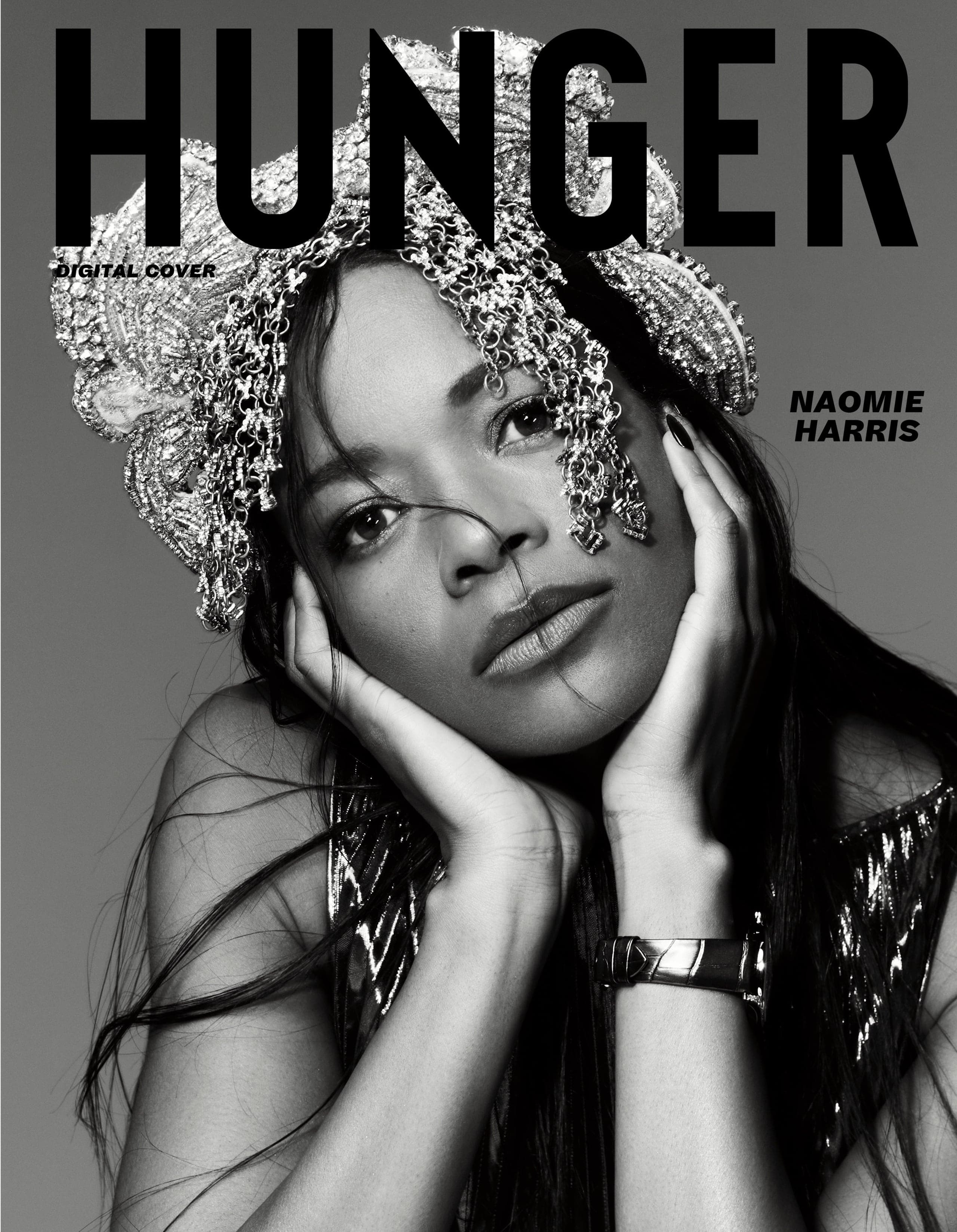
Chiwetel: Naomie, you have starred previously in dystopian novels, could you tell me what drew you to The Man Who Fell to Earth in particular?
Naomie: I really like to be part of projects that are edifying in some ways, so for me, it’s not just about pure entertainment but projects that have a really strong message. I loved the fact that The Man Who Fell to Earth highlights our environmental issues in such a beautiful way and brings them to the forefront of our minds because there are very few things that are more important than our destruction, well, pretty fast destruction, of our beautiful planet. So I really wanted to be a part of a drama about that, plus, I got to work with you Chiwetel.
Chiwetel: You spend a lot of time in nature, you’re in Costa Rica now. Is your relationship to the natural world quite strong?
Naomie: Yeah, and I like it to be strong. I mean, I know you like to get off to the countryside as well. It’s really important to me, it’s where I ground myself, and where I get my energy from really. I’m much more of a loner in terms of the way I operate. Some people are very sociable and get their energy from other people, but for me it definitely comes from being alone in nature. So I have a deep respect for it because I know about its restorative abilities.
Chiwetel: On the scientific aspect of The Man Who Fell to Earth, do you have much interest in science fiction personally? If so, any favourite books or films?
Naomie: I have to be quite honest with you, science fiction is not my will. I wouldn’t choose to watch or read a sci-fi drama because what really interests me are human dynamics. What I think is so special about The Man Who Fell to Earth is that its heart and soul is sci-fi, but it is really about delving deep into what it means to be a human being. So people will label it sci-fi, and of course, it is, but it’s so much more than that.
Chiwetel: Actually, this kind of expands on that, what drew you then to the role of Justin Falls? She’s a single mother and a scientist, who’s having a pretty difficult time.
Naomie: I think Justin for me is representative of my mother in many ways. So many mothers like her are struggling to hold down jobs, and raise a family… There’s this immense struggle of trying to do it completely on your own. And really, in the process, you lose yourself, your identity, your connection and awareness to your strength, the natural abilities you’re born with, and you kind of get stuck in the drudgery of life. So for me, she represents every single mother, and I love the idea of her meeting your character, Faraday, who manages to help remind her of who she truly is and shows her what a gifted scientist she is, and how she’s capable of achieving so much more than she was allowing herself to at the beginning of the drama.
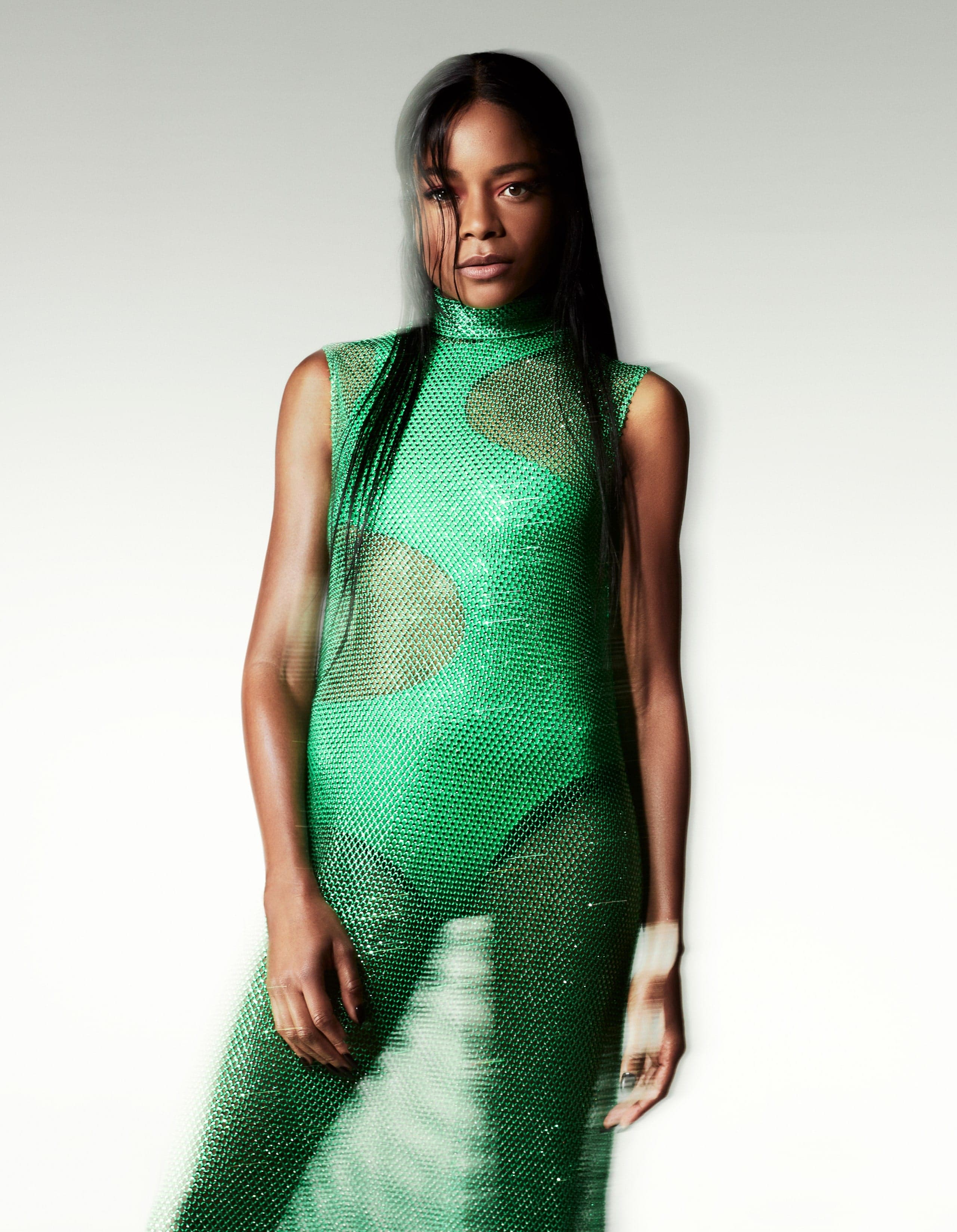
Chiwetel: And how did you find the time on set? Any challenges?
Naomie: I’m glad I’ve got the opportunity to talk about it now [laughs], challenges, challenges challenges. For me, I’m used to doing film, it’s pretty much all I’ve done. And if I’ve done TV, it’s only been like one or two episodes of something. So, I had no idea the amount of work it would take to do episodic TV. Basically, in a film there’s one emotional arc, right? But with episodic TV, you’re doing that emotional arc in each episode so it’s incredibly emotionally draining and physically demanding, and then we didn’t expect to work the kind of days we did. Ultimately, we were working six-day weeks and 14 hour days.
Chiwetel: What was your favourite thing about working with me?
Naomie: Erm, I can’t think of a thing, in fact [laughs]. You’re incredibly dedicated and you know the material inside and out, so I could really lean on that. There were so many points where I was like I’m lost. Where are we? Where are we emotionally? Most of the time I could rely on you to point me north, you know, so that was really helpful to have, and you’re extremely talented and committed in the moment as well.
Chiwetel: Thank you, I could say all the same things about you too. Why do you think the story is so prescient now?
Naomie: As I said, there is no more pressing issue. I mean, we might blow ourselves up with some kind of nuclear war, but other than that, there’s no more pressing issue than the way we’re treating our environment. And when we talk about the environment, we’re really talking about ourselves; we pollute the water that we drink, and we pollute the air that we then inhale. So, for me, it’s the lack of self-respect, in fact. To respect the environment is to respect the divine and our creator — so what’s going on now is really severing our connection to all of that. I definitely wanted to be part of this drama for that reason.
Chiwetel: Where do you think the medium of film and television sits as a way of exploring climate change and reaching people with it?
Naomie: I’d say that it’s extremely powerful. I mean, there are a few things that are more powerful than the medium that we’re lucky enough to be part of, and therefore I think we have to treat our work with tremendous amounts of care and respect, and really realise that people are incredibly influential and easily influenced. You have to tread extremely carefully when it comes to what kind of work you’re generating and what message it has, because people genuinely digest it and it has an impact. I think the only other thing that’s more powerful is your relationship with your close friends and family, and what they have to say. Otherwise, a drama can really affect the way you view the world, especially if you haven’t had an opportunity to see much of it. For a lot of people, that is the case, they don’t get to travel and see people from other cultures and ethnicities.
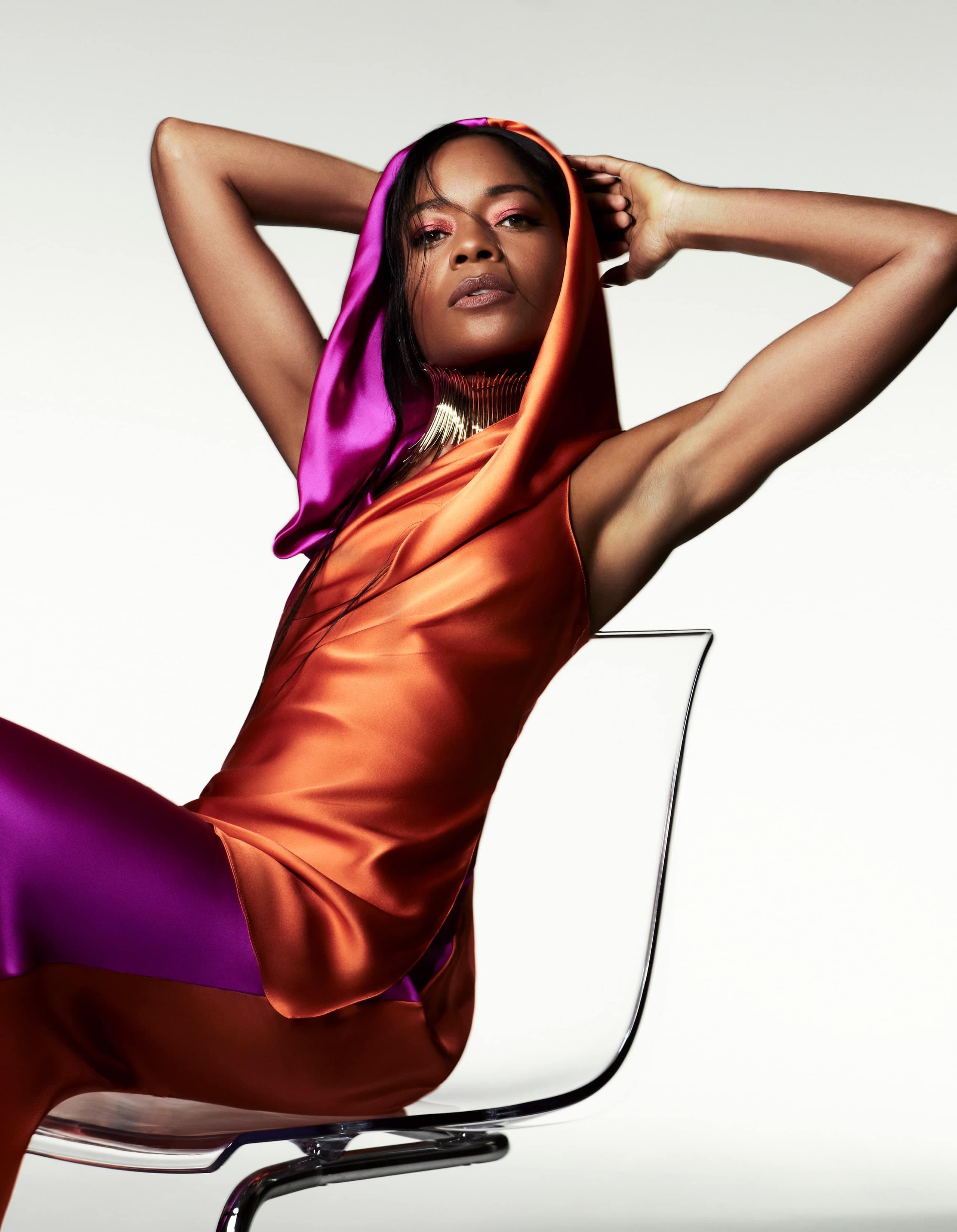
Chiwetel: The show deals with a turning point in human evolution, you know. It’s quite prescient with where we are now as people, coming out of the Covid-19 pandemic. Do you think we’re all also at a turning point?
Naomie: Yeah, I think it really is a massive turning point for us. The pandemic and experiencing two years of lockdown really accelerated that. There are many, many, many negatives to do with Covid-19, but there are also some positives too. One of them is that we as a people had a chance to stop and self-reflect. To get time with your family, to take stock of your life and reflect on where you’re going and what you want to achieve was extremely powerful, and as a result, I think we are very different people globally. It’s a real turning point on so many levels, not just in terms of the environment, but also for our spiritual development and our connection to ourselves.
Chiwetel: So let’s talk a little bit about David Bowie, and the 1976 adaptation of the same book. Did you ever get a chance to take a look?
Naomie: Of course, I took a look! It’s a very wild journey, isn’t it? It’s really a wild one. And I don’t know about you, but I didn’t know that it correlated hugely with the show that we created. Did you feel?
Chiwetel: We go into a very different realm with this one we made. What did you think about the original? What did you make of David Bowie?
Naomie: I thought David Bowie was extraordinary. I mean, what a performance. I thought he was utterly brilliant in it and the film is a cult classic, right, and it’s mainly among real film buffs. I think that’s for a reason. It’s a little inaccessible, I would say.
Chiwetel: Our version differs front the 1976 film and the 1963 version because in them the female characters are largely romantic interests. But in our story, your character, Justin, is a leading character and a scientist. Why do you think it’s so important that women aren’t relegated to ascribed roles.
Naomie: Well, it’s hugely important to our story that Justin isn’t relegated to just being the romantic interest because she is Faraday’s access point to the world. She is his compass in so many ways; his moral compass, his compass in terms of how to navigate and interact with other people… Without Justin, he would be completely lost. They really help and complement each other in incredible ways. I think generally men and women should always have an equal role in whatever they’re part of because they have very different voices and those different perspectives help enrich the drama.
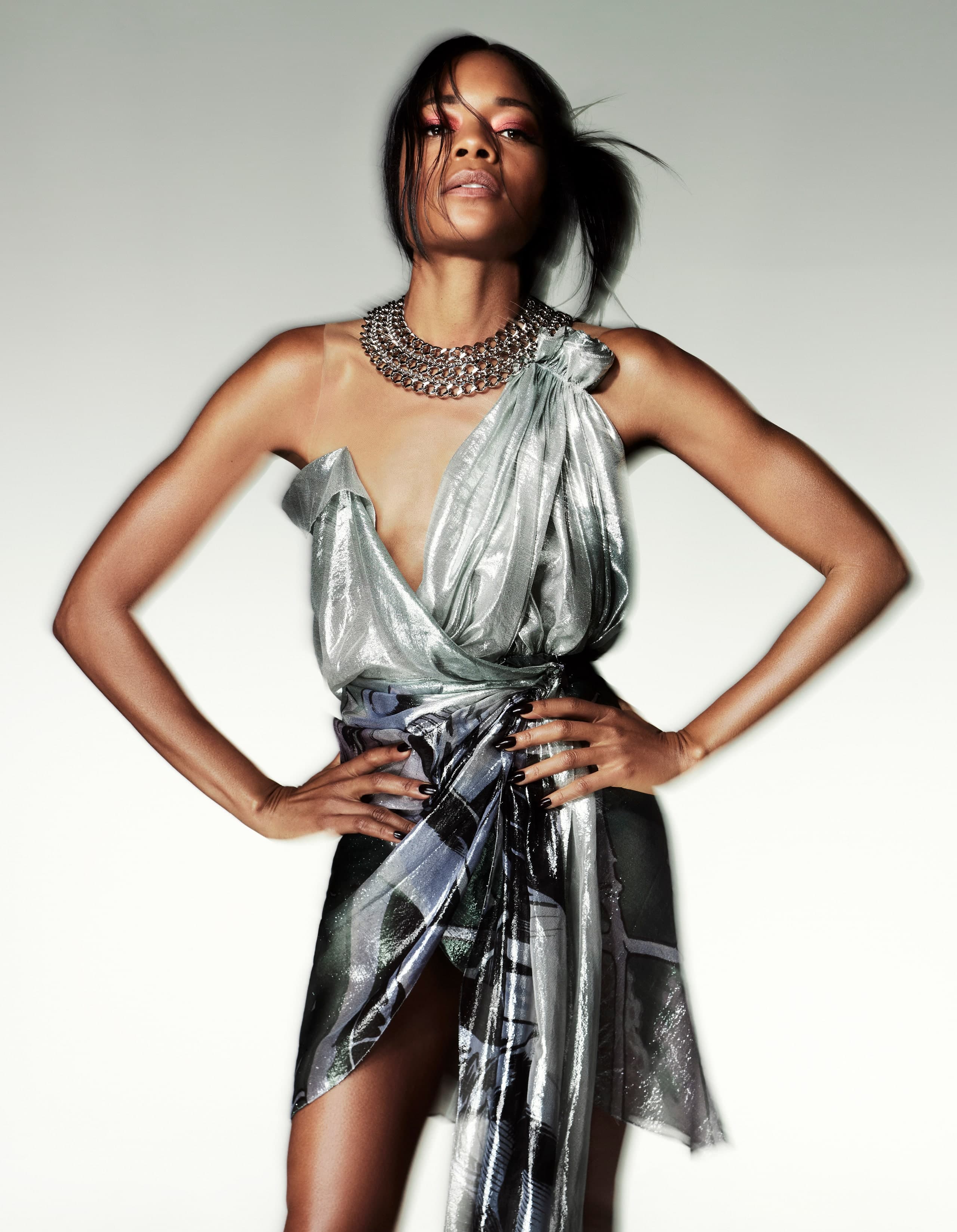
Chiwetel: I think we can agree that no group should be relegated to two-dimensional characters. Even the need to expand on why a woman should have a three-dimensional role will increasingly be a thing of the past. The other thing, of course, is that there are two Black leads in this project.
Naomie: I find that question so extraordinary about the two Black leads though, because you wouldn’t say that if there were two white leads.
Chiwetel: Well, exactly for the same reason. One hopes that the need to draw attention to these areas is something that will hopefully become a relic of a bygone era. But do you think there’s been progress when it comes to representation in prestige television?
Naomie: I think absolutely, yeah. I think that’s been a massive shift. I mean, I’ve been working since I was nine years old. So it’s like 35 years in this industry, and I’ve seen massive, massive shifts and I’m so excited about that. There’s far more opportunity now than there ever has been in terms of playing leading roles in dramas and also colour-blind casting. I’m so excited about the point we’re at for the next generation of talent that are rising up, there are no limits in a way. I’m just sad that it took so long to get where we are now.
Chiwetel: What do you feel is the next part of that sort of development?
Naomie: What we’re already seeing is that the younger generation is taking control of producing, directing and creating their own material so that the work is even more reflective of who we are and how we want to be represented. It’s fantastic because then the vision we and presented with is more and more authentic and represents us truly.
Chiwetel: I have one last question. Just simply, what are you most excited about when it comes to the release of The Man Who Fell to Earth?
Naomie: I’m stumped. What are you most excited about?
Chiwetel: Well, I’m asking the questions here. I think that [creators] Alex [Kurtzman] and Jenny [Lumet] have created something really, really special with extraordinary scope and a beautiful, wonderful vision.
Naomie: Sorry to interrupt. But we also have to give a shout out to [Tommy Maddox-Upshaw] as well? The look of the show is absolutely amazing, and that’s due to Maddox’s brilliance in cinematography. It’s absolutely incredible.
Chiwetel: Yeah. So I’m excited for people to really experience the level of creativity, imagination, empathy and passion that went into this from the creative team. It’s really an extraordinarily rich experience.
Naomie: I might say ditto.
The Man Who Fell to Earth will air on Showtime on Sunday, April 24th in the US, and launch on Paramount+ in the UK this Summer.
